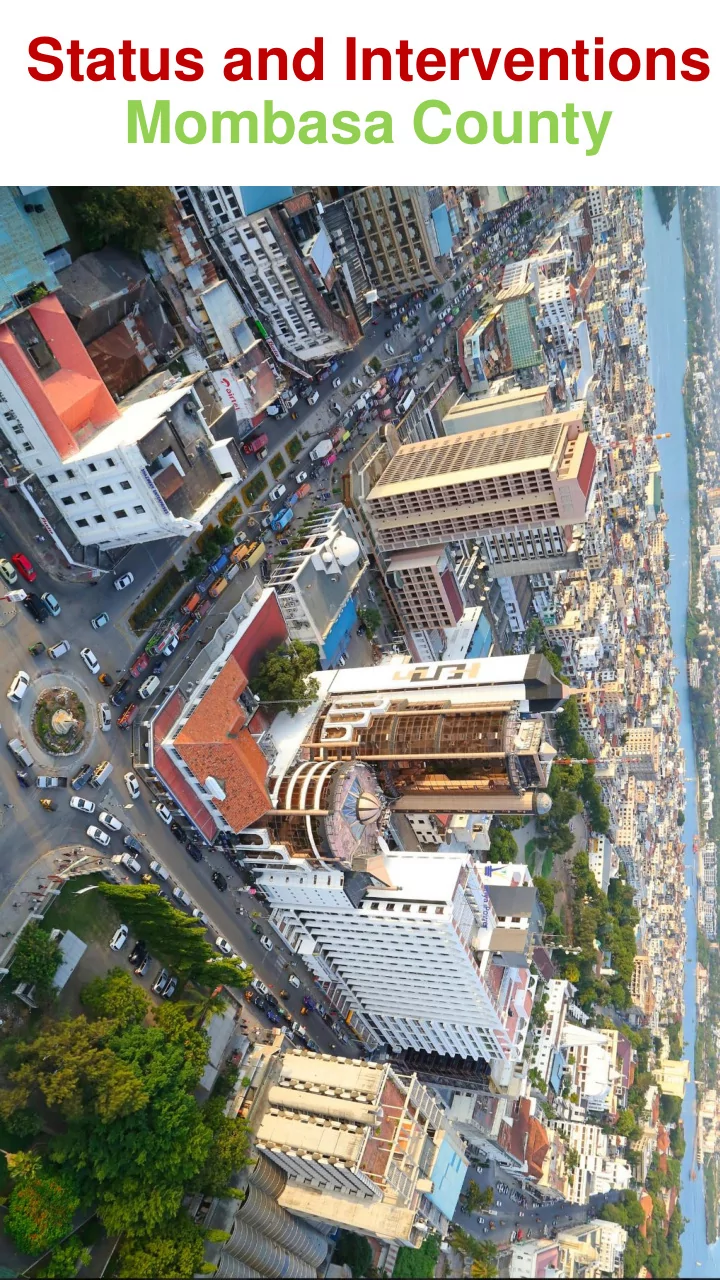

Status and Interventions Mombasa County
Sub-Targets for the Project Find methods of Increase the education within the knowledge within the designated areas designated areas Improve cooperation and knowledge within designated areas
Knowledge increase within the target area
Educating the target group Awareness creation to the public on waste segregation during the Agricultural Society of Kenya Show
Study Visits Environmental Officers participated in study visit on environmental governance in Denmark, September 2019
Study visits Environmental Officers on study visit to Denmark on Solid Waste Management, November 2019
Public Dialogue
Transparency and Public Participation Public Participation for Solid waste management Policy and Bill, October 2019
Methods of Education within the target area https://mijibora.org/ http://www.mombasa.go.ke/ https://web.facebook.com/pg/Department-of-Environment-Mombasa- County-679005298925795/posts/?ref=page_internal
Improve cooperation and knowledge in the target area
CGM vs UNHABITAT file:///C:/Users/DR.%20NATO/Desktop/Mombasa%20Future%20Waste %20Flow%20(3).pdf
CGM vs ETHEKWINI Peer to Peer Exchange learning visit with representatives of eThekwini Municipality in South Africa
Learning Outputs RECYCLING: Durban has a success story on recycling where materials are repurposed into valuable goods. A good example is the recycled plastics into paving stones COLLECTION POINTS: Increase efficiency of transport of waste to dumpsites through concentrating collection at discrete points in informal settlements. SEGREGATION OF WASTE AT SOURCE: Dealing with waste at source would be important. Separation would reduce waste transport. The orange and black bags in Durban . SYSTEMS APPROACH: Dealing with waste requires a systems approach as it cuts across many sectors e.g. roads, drainage, planning ect. NETWORKS: Institutionalise political support through engagement with international city networks such as C40 Sister Cities. CONTAINER DEPOSIT SCHEME: A container deposit scheme is implemented where recyclables are left at designated sites for a deposit return. COMMUNITY WASTE COLLECTION PROGRAMME: A network of stations could be set up, with recycling holding bins and proper shelter as the nucleus of the community waste collection programme.
CGM vs KARA (Policy and Bill) Prevention: Manufacturers of products, consumers and other waste generators should endeavour to prevent generation of waste; Proximity principle: Waste should be managed close to where it is generated; Self-sufficiency principle: Where possible and practical, each urban area or zone should manage its own waste; Polluter pays principle: Those who generate waste should bear the cost of managing the waste to minimize risk to human health and the environment; Precautionary principle: Take precaution to safeguard human health and environment even if scientific evidence is not conclusive. Sustainable development: Promote development that meets the needs of the present without compromising the ability of future generations to meet their own needs; Inter-generational equity: Waste should not be managed in a way that bequeaths legacy problems to subsequent generations; Intra-generational equity: Waste management resources and services should be equitably accessible to all citizens or residents. Public participation: Stakeholder participation in solid waste management.
ADMINISTRATION: County solid waste management committee, ward solid waste management committee. RIGHTS AND DUTIES: • Rights to clean environment, responsive county services and inclusive participation in SWM processes. • The duties of the citizens on matters solid waste management including prevention of waste generation, proper waste handling, segregation, and proper disposal of waste. REGULATION OF SOLID WASTE MANAGEMENT • Strategies for prevention of solid waste generation. • Solid waste handling, storage and processing at source including the responsibilities of waste generators, waste collectors, premise owners and the various penalties and fines for violations of this act. • Solid waste collection including provisions for waste handling at public places, and integration of youth, women and persons with disabilities in service delivery chains. • Public-private partnerships in waste management process. • The requirements for licensing and the different classifications of licenses. • Gives enforcement guidelines. SOLID WASTE MANAGEMENT PLANNING • The development of county solid waste management spatial plan • Mapping of the county into solid waste management zones. FINANCIAL PROVISIONS • Outlines the levy fees and charges for the various players in solid waste handling.
CGM vs GIZ GIZ assisting the county to unlock financing for climate change projects
END
Recommend
More recommend